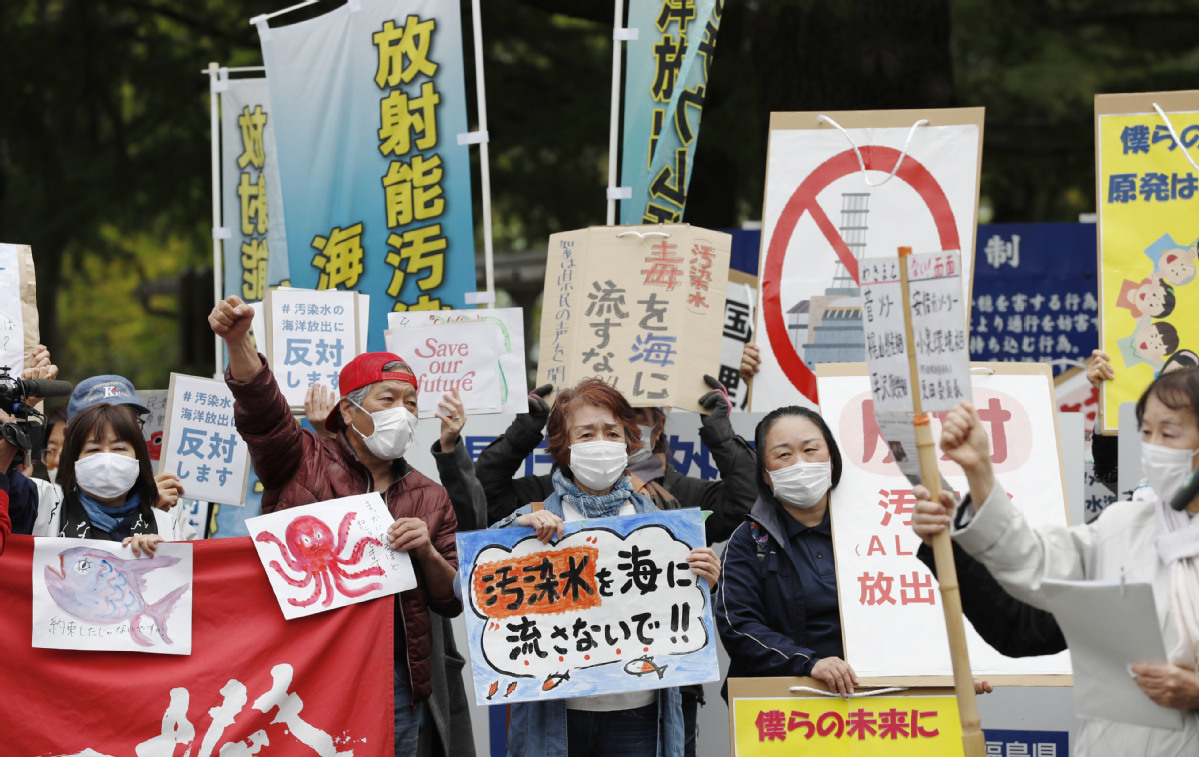Japan's cheap option will prove costly


Plan to dump reactor water in sea will rebound on Tokyo, despite US cover
Dumping contaminated wastewater into the sea may be the cheapest way for Japan to deal with its wrecked Fukushima nuclear plant, but the government's decision is shortsighted and hints at geopolitical maneuverings with the support of the US for the move.
Tokyo announced on Tuesday that it plans to start releasing massive amounts of the radioactive water-stored in tanks at the tsunami-devastated Fukushima Daiichi nuclear plant-after two years. The decision has brought to a head longtime fears both in and outside Japan that the government would proceed with a plan flagged years earlier.
Although Japan claimed that the government would work to make sure the wastewater is safe and help domestic enterprises engaged in agriculture, fisheries and tourism, the Japan-centric action stirred up widely held concerns that people everywhere will be harmed.
Given the prospect of unprecedented levels of contaminants harming the marine life and biosystems of the Pacific Ocean, the damage would initially be felt in the Pacific area before spreading farther afield, said Zhou Yongsheng, professor and deputy director of Japanese Studies Center at the China Foreign Affairs University.
Zhou believes the damage would eventually become a catastrophe for the global community.
Japan's action would not only harm the country's own fisheries, but also damage the fisheries and aquaculture industries of countries in East and Southeast Asia-and even North America-on a large scale, Zhou said.
"Especially for those countries that heavily depend on desalinated seawater as drinking water, the effect could be more direct and serious to the people," he said. "Modern science can help dilute and reduce the radioactive isotopes in the wastewater, but it cannot eliminate all the radioactive substances from the water."
In the long run, no single country will be able to escape the radioactive storm set in motion by release of the contaminated wastewater.
When asked why the issue has aroused little concern in Western media reports, Zhou believes the reason that Europeans have not raised strong objections is their apparent belief that they will not be affected, at least in the short term, given the continent's distance from Japan.
However, the US, which Zhou said will become a victim of the ocean-carried contamination, will not suppress Japan on this issue as it is "trying its best to draw Japan against China", Zhou said.
China's Foreign Ministry spokesman Zhao Lijian said the disposal of nuclear wastewater from the nuclear plant is "related to the international marine environment, food safety and human health".
He also said the US appears to have always attached importance to environmental issues, and it is hoped that the US will avoid double standards or bias on this specific "real environmental issue".
Zhao's comments came as the US State Department said on its website that Japan "appears to have adopted an approach in accordance with globally accepted nuclear safety standards" in relation to its sea disposal plans.
But Zhao said: "International authorities and experts have clearly pointed out that the discharge of tritium-contaminated wastewater from the Fukushima nuclear power plant into the ocean will affect the marine environment and the public health of neighboring countries."
He added that the existing treated wastewater contains contaminants such as radionuclides and needs to be further purified and treated.


















